#narrative strucutre
Note
I feel you asked for this: for the finding good in it meme, do me classical music?
Or if you prefer, Wildrider (who I do not know well enough and am rapidly getting enthusiastic about on your description/s)
I kind of did ask for that, didn't I... The narrative storytelling found in classical compositions is pretty cool, and neo-classical music tends to use more interesting key and chord progressions than non-classically-inspired music, which I respect. CLassical fusion tends to lead into more interesting music than music that doesn't at least touch on clasiscal composition concepts as well. The effect of classical composition strucutres and neoclassical structures on progressive music in general (my preferred genre, experimental nonsense) is genuinely pretty cool and I respect it even if I wouldn't put on classical music just to listen to.
5 notes
·
View notes
Text
SNAPSHOT META: 1x01 - PILOT
I’m rewatching the entire series over the summer - not only because my memory bank is in dire need of refreshing, but because what else are we supposed to do during hellatus? Meet up with friends, go to the park, enjoy the sunshine? *snorts with derision* (okay I’ll be doing that too) (I’m not staying in all summer watching SPN and writing meta) (*shiftiest eyes*) I wanted to do this as part of this awesomeness and will attempt to catch up. If I can’t: *shrug* What can I say? Real Life and all that. Yes, friends in the park with sunshine. (be honest) I work. A lot. Of the hours.
But to make it up to you, I’ve planned THIS

No, I’m not going to dress up as Marilyn Monroe and come to your house and shower you with champagne. (or am I?) No, don’t be silly - I can’t do that! Instead, I’m going to encourage you all to drink! By introducing the Spectacular and Penultimate and so very Necessary Drinking Game. (*SPNDG for short) For those who do not partake of the alcohol or for those of you who are underage there will be soda pops involved. (considering how much I curse I sincerely hope each and every one of you are of age)
You with me here? AWESOME! This will be us come end of summer:
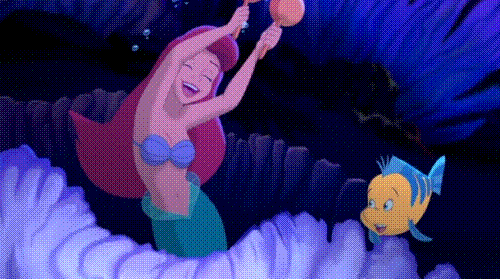
Though possibly not quite so fishy... Either way, we’ll be ready for S13, peeps!
So, I had this ambition to do this Snapshot Commentary thing for each episode, getting through one or two a day. This post has taken me four days, the hours I’ve had to invest interspersed unevenly at best, and @margarittet was nice enough to do the maths - my ambition would take me over two years to fulfil at this pace. Yah. And as I lack a Time-Turner (god I wish I had one WHY JK ROWLING??) I may just have to watch the series as planned and write meta on the episodes that stand out as deeper narrative beats, both plot and character wise. Fuck. I already know there are so many of them. But I’m excited to get started! Writing this meta has been so much fun and I hope you’ll enjoy it.
I know I’m probably repeating stuff someone else has already said, but do you know what, I haven’t gotten to say it, so I’m saying it for myself now. Keep a lookout for them drinking prompts, because that means fun times up ahead, and don’t forget to drink responsibly. (remember nesnej) (oh god we’re all gonna get sloshed) (or very, very high on sugar)
Here we go!
Snapshot Commentary: 1x01 - PILOT
Mary and John are Good Parents
Sam is the cutest baby e.v.e.r
Young Dean worships his father already
Flickering lights are always sinister
Baby monitors are always freaky
Guys standing ominously in shadow are super-disconcerting
MARY, THAT WAS NOT JOHN!
Oh, the pain of that fiery death is just… no
And, of course, Dean is handed Sammy to look after and to save —- *ow*
“It’s okay, Sammy.” —- *ow*
Why did little baby Sammy have to see his mother burn on the ceiling?? —- *OW*
Jessica is a beautiful girl
Jessica needs to wear more clothes
I worry Jessica may catch cold
Lightly Clad Female adulation: *Tequila Time
Sam is gorgeous
Sam doesn’t buy into Halloween
Sam is smart as all fuck
Sam isn’t close to his family
Jess is his family: she believes in him, encourages him, is proud of non-hunter him

The character intro of Dean fucking Winchester: an Intruder Cloaked in Shadow (friend or foe, we don’t know - remind you of anyone?)

Them boys got them fighting skills down
*no. 1 - BEER
Jessica is a beautiful girl
Jessica needs to wear more clothes
I worry Jessica may catch cold
*no. 2 - Ladies Man Dean switching on the skeeze charm
There’s good reason to be afraid of the dark
Them boys hunt them things that there’s good reason to be afraid of
Them boys kill them things and save lives
Dean takes pride in this - Sam is trying to move on from it: root of brotherly conflict revealed and we are at minute 8:55, peeps
Dean: So what’re you gonna do? You just gonna live some normal, apple pie life, is that it?
Wait, what? Pie is synonymous with what?

*no. 3 - PIE
Sam: No. Not normal - safe.
Dean manipulates Sam reaches out because he does not want to do this alone, even though Sam more or less just told him that all he wants to be is safe from all of it: dick move, Dean - but then, without it, there’d be no story
Sam gives in — brodependency already in full swing
Baby <3
*no. 4 - Impala Weapons Stash
Sam is incredulous that Dean got to go on a hunting trip alone, which tells us John was always an Overbearing Parent, but…
Dean points out he’s twenty-six - an adult, meaning John trusts him to take care of himself
Conversely: in the original pilot script “Jack” (John’s original name was Jack) (yeah, I know, right?) makes a distinct, but brief, difference between his two sons: Baby Sam can have Dean’s room if baby Sam sleeps through the night. This may be an innocent promise, but it’s still telling of what John’s relationship with his boys was always meant to be. Sam is more important and Dean is left to fend for Sam, and to fend for himself.

Headcanon -> John was only overbearing for as long as Sam was still there. When Sam chose to leave, John started splitting up from Dean for longer and longer stints of time, leaving Dean to truly fend for himself. Dean is telling Sam the truth: he doesn’t want to do this alone anymore, he’s been completely alone from the day Sam left and Dean is a pack animal, someone for whom family is everything, it’s what’s been drilled into him since he was four years old and probably before then. Who is he if he’s not taking care of Sammy? For two years, no, for longer than that, he’s been trying to find out and he’s come up short. Bottom line? Dean Winchester is lonely and he misses his brother, misses the purpose he always gave him, craves that purpose like a drug. Without Sammy - Dean is lost, because all his life all he’s ever tried to be was John Winchester, so that he’d be strong enough to keep Sam safe, and keeping Sam safe meant that perhaps their dad would be proud of him, but without Sam, modelling himself on John loses its meaning, and if he’s not emulating John Winchester, then who is he supposed to be? He doesn’t know. And, quite possibly, the thought of finding out feels like a complete betrayal of everything his father ever taught him. Because you never give up on family, and that has always been a double-edged sword.

Minute 12:53
Jericho, California
I can never go home…… *chills*
Jessica is a beautiful girl
Jessica needs to wear more clothes
I worry Jessica may catch cold
Hottest Woman in White ever - them victims never stood a damn chance - maybe if you didn’t throw yourself at men with wives and girlfriends, Hotness, they wouldn’t be tempted to cheat *eye roll* (female representation too often sucks)
Friendly Reminder: Lightly Clad Female adulation means fucking *Tequila Time, y’all

Sidenote: as much as I love how this episode is resolved, I do find that there’s a big gaping logic hole in this antagonist’s motivation when the Woman in White is killing men because her husband was unfaithful, and yet she is clearly not averse to literally forcing her victims into a compromised position, in essence she’s raping them before killing them. She’s a vengeful spirit and she’s seeing red, meaning she can’t actually weigh the good and bad in her decisions, and I get that, but seriously? She’s killed ten men over twenty years. Why not more? Why not only target those that are up for it by their own volition then, if you’re going to be so damn picky? Meh. Whatever.
Minute 18:21
*No. 5 - Every time they say the word “agent” have a drink of water (I’m not a sadist) (well I am a little) (like Misha Collins) (so there’s a bit of goodness) (to my badness) (water is life) (and helps against massive hangovers)
Dean doesn’t have a whole lotta respect for the lawmen
(Jensen has the biggest, greenest eyes)
Sam is empathic - in touch with his emotions
Empathy makes Dean fidget - out of touch with his emotions or, you know, unwilling to touch them
Constance Welch - Hottest Woman in White Ever has a name, glory be!
Please hold for some Dialogue Deconstruction…
Here’s the Bridge Exchange between the brothers:
Sam: Dean, I told you, I’ve gotta get back by—
Dean: Monday. Right. The interview.
Sam: Yeah.
Dean: You’re really serious about this, aren’t you? You think you’re just gonna become some lawyer? Marry a girl…
Sam: Maybe. Why not?
Dean: Does Jessica know the truth about you? I mean, does she know about the things you’ve done?
Sam: No, and she’s not ever going to know.
Dean: Well, that’s healthy. You can pretend all you want, Sammy, but sooner or later you’re going to have to face up to who you really are.
Sam: And who’s that?
Dean: You’re one of us.
Sam: No. I’m not like you. This is not going to be my life.
Dean: You have a responsibility.
Sam: To dad? And his crusade? If it weren’t for pictures I wouldn’t even know what mom looks like. What difference would it make? Even if we were to find the thing that killed her, mom’s gone, and she’s not coming back.
Dean: Don’t talk about her like that.
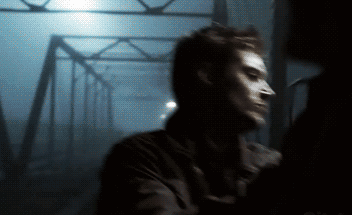
This exchange tells us so much about these two men, their past, their present frame of mind, stating the conflict in their different points of views. Oh, my Kripke. *salivating*
Dean
thinks a normal life is a pipe dream
which is confirmed as the truth by Sam finding it necessary to lie to Jessica
leading to Dean calling Sam out on the unhealthiness of denying who you really are (!!!)
Now for the underlying conflict this exchange highlights: Dean needs his brother back in the family business. His face when he tries to throw the responsibility barb at Sam and Sam shakes it off - Dean looks hurt, he was speaking for himself here, not John and as we’ll learn, Dean practically raised Sam, so for Sam to find it so easy to leave him behind, to not even take him into account, it must hurt like all hell
Dean is protective of Mary’s memory: whether it’s out of loyalty to her or loyalty to John is hard to tell at this point, right? Mary’s memory has shaped Dean’s life, and of course he has his own memories of her, but is he protective of her as his mother or as the motor behind his entire existence, which Sam is more or less calling bullshit on here? Maybe it’s both. Maybe they’re irrevocably the same at this point.
Dean is a foot soldier: he’s had his reason for existing drilled into him from when he was old enough to have it drilled into him that this is who he is and this is all there is to him, there is no questioning orders, there is no breaking away from it, there is nothing else out there more important than family
Dean is loyal and duty bound, displaying a softly selfish streak as he pulls Sam back into the life, as well as giving us hints of that deep insecurity when it comes to his own identity, an insecurity that we’ll get to know so well over the seasons (remind you of anyone?)
Lets’ look at the exchange again, this time from Sam’s POV:
Sam
that “maybe” denotes a hint of uncertainty
that turns into defensiveness
because deep down he’s afraid that Dean’s right and there’s no “normal” to be had for him
and, as with most things, a twofold: we’re heading into dark territory with Sam and this uncertainty is subtle foreshadowing of how he’s always felt different and out of place
but as we’ll come to learn about Sam, once he stops beating against the hunter side of himself, he’ll find his MoL side, his Leader side, and that journey starts right here as well, in this subtle show of uncertainty, because what Sam truly needs ain’t ever going to be “normal”
it’s funny when Sam tells Dean he’s nothing like him, because the truth is: Sam beat Dean in that first scuffle, Sam found the name of the Woman in White, Sam picked the lock at the motel, Sam concluded John’s in trouble by examining the room, Sam got Dean out of jail by placing a prank call and, of course, Sam’s going to resolve the episode by taking action
so obviously Sam is a hunter to the bone - and he’s better at it than Dean
it’s lovely that Sam immediately ties John’s hunt for Mary’s killer to Christianity by dubbing it a “crusade” - very subtle foreshadowing here
Sam is so over all of it: he is all about free will and his right to exorcise it, not buying into the crap John is selling, not seeing the point, if there ever was one - it won’t bring their mother back, she’s gone, they need to move on with their lives
as he says to Dean in their earlier exchange: Mary wouldn’t have wanted this for them, and of course we know Sam’s right in this assumption
but that said, Sam also has loyalty and a sense of duty, rooted in love for his family, and though he knows who he wants to be, there’s a clear insecurity about who he can be
he’s just not ready to sacrifice his sense of self for someone else’s idea of what is the right thing to do with his life
It’s the classic Hero’s Journey setup for Sam, of course: without resistance there’s no possibility for growth. If the Hero begins in a place where he’s comfortable with the journey he’s about to be launched onto then the necessity for him making the journey disappears and there’s no hook into the narrative. (remind you of anyone?)

Minute 24:43
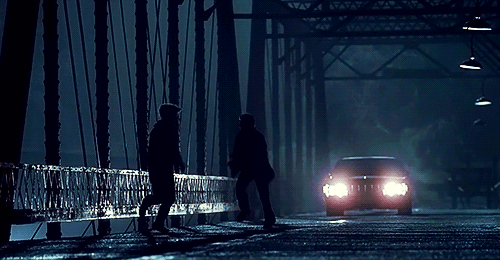
Jump up on the railing, boys. The railing. THE RAILING, BOYS, THE CAR CAN’T GET TO YOU IF YOU’RE… oh, forget it.
Even covered in mud you are one hot cookie, Dean Winchester
John Winchester is a pro
John Winchester is detail oriented (MoL)
John Winchester is clever
John Winchester is in trouble (stakes raised)
Sam apologises for what he said about John and Mary and Dean deflects the sentiment with a “Hey, no chick flick moments” — *awww*
*No. 6 - whenever Dean DEFLECTS SENTIMENT we toast each other with a RAWR
*No. 7 - whenever Sam tries to get Dean to talk we toast the TV with a JERK! BITCH!
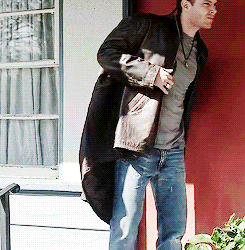
On Dean Donning John’s Leather Jacket: I reblogged some gorgeous meta just the other day on this topic and couldn’t add my own thoughts because I simply didn’t have enough of an opinion. @dustydreamsanddirtyscars I still feel your meta was beautiful and that’s why I wanted it on my blog *head still bowed to you*, I also see how Dean is drowning in that jacket and all it symbolises, but I will agree with @elizabethrobertajones, who pointed out that the jacket is a visual metaphor for Dean shouldering responsibility for the family business, and I’d even like to delve a little deeper into what the jacket represents for me in this moment in time.
Firstly, I’d just like to point out how utterly downplayed this moment is in the pilot. If I hadn’t been aware of the jacket being John’s I wouldn’t even have registered how significant Dean sliding it on actually is, given how the episode plays out. We’re at minute 28:44 and the fact that there’s a ring of salt on the floor of John’s motel room has told the boys that John was worried, that he was trying to keep something out. The possibility of something truly bad having happened to their father is beginning to seem more and more likely to the brothers.
But, secondly, what is so interesting about Dean grabbing his father’s jacket is that he does it casually, without a second thought. It tells us John clearly wouldn’t mind Dean wearing his jacket, or Dean would have left it where it is. To me, this shows a bond. (As does the fact that John has given Dean his car, but that’s for later meta.) It shows a closeness between father and son because they’ve been united in their hunt for Mary’s killer and Dean has earned his father’s respect and trust, no matter how absent John is in Dean’s life. What Dean needs is his father’s love and acceptance and, of course, these he can’t ever have because Dean isn’t comfortable enough in himself to ever admit this is what he needs. And if he can’t admit it, then how can he ask for it?
So Dean dresses himself in his father’s clothes and steeps himself in his father’s image (down to driving his car and listening to his music) in order to connect with his father, because regular Dean has never been quite enough. And, furthermore, Dean emulates his father in order for Dean to do his duty, to be the responsible one, to look out for Sammy. It’s what he’s been doing for twenty-two years so donning his father’s jacket in this scene is casual because it’s what Dean does every day of his life, it’s who he already is - an extension of John Winchester.
It’s why the significance of this moment is downplayed, rather than acting as foreshadowing for what’s to happen to Jessica in ten minutes by underlining the fact that something bad must’ve happened to John - because this isn’t what this moment is there for, it’s simply an extremely subtle way of planting the visual information of how Dean is already a shadow of his father.
Note: they begin putting deeply emotional and key character moments entirely in visual subtext from day one. This is how they write this show and how they have always written this show. Because they are amazing writers and this is how amazing writers write shit down. A good screenplay needs to work on multiple levels and deliver on this type of thing in every scene, because each scene is meant to be a building block for the narrative and the foundation for the narrative is subtext.
Writing a good screenplay is not easy or straight forward, it takes a lot of consideration for what details actually matter to the narrative as a whole and that consideration is always based in knowledge of your character’s backstory and, preferably, at least some notion of their endgame. Though endgames change and aren’t an absolute necessity, I’d say it’s very difficult to steer a narrative without even a loose destination in mind.
And look at how the brother’s are set up in the pilot: this is the relationship we’re going to follow for the coming twelve years, and the core conflict is right there, in their first scene, enhanced in this exchange I’ve just briefly deconstructed. It is meticulously crafted writing. (I just cannot EVEN)
Minute 29:40

Dean gets bent over the hood of a car and yeah, he likes it - there is no reason for him to like it that much, except for this actually being one of those downplayed visual character moments that would give the casual viewer insight into Dean enjoying being bent over things by men in uniform, if it wasn’t so ambiguous (we know though) (we know) (the foreshadowing for Dean’s bisexuality, and him being privately ok with it, too - look at that smile - is starting right here, guys) (IN THE PILOT)
So Dean previously dissed the cops for not having a clue
Now he’s their only clue to solving the murder
This leads Dean to the biggest clue he’s found in his John Winchester investigation
John Winchester’s JOURNAL (god that’s a great visual) (you can hear the weight of this revelation as the journal hits that table like a brick) (I wish I had a GIF)
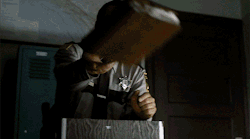
Thank you, @elizabethrobertajones!!
(I wish I had a million dollars)
Now, Dean dissing the cops when he and Sam first arrive on the crime scene and actually being proven wrong - because these cops clearly have eyes and ears on alert - is good, this tells us Dean’s not as slick as he thinks he is

Sam being the empath again - gently interrogating Constance Welch’s husband
until he switches on the badass - because Sam is not beyond pushing for the truth and pushing buttons to get to it: logic and gut instinct stemming from emotional intelligence, I would argue, because Sam has always been honest with himself and tried his hardest to follow his heart
the fact that Dean so easily slips out of the station WITH THE JOURNAL reaffirms the fact that Dean is good at what he does - granted with assistance from Sam: this instils in us the confidence that Dean knows what he’s doing, getting himself out of the jam he got himself into (possibly this was an unintentionally planted soundbite, but the Getting Themselves Out of Jams They’ve Unintentionally Created For Themselves still hits a note that will echo through the entire series)
John’s left Jericho and he didn’t take his journal (the plot thickens)
SHIT THERE’S A GHOST LADY IN THE MIDDLE OF THE ROAD SAMMY!!
And now she’s IN THE CAR WITH YOU SAMMY!! (stakes raised sky high) (she gonna kill you!) (don’t say oh hell yes!)
Ok, good, there’s that cleverness I’ve come to know and love, Sam, good boy for telling her no, but of course, it’ll make no difference whatsoever because this ghost will violently murder you for getting excited by her cleavage and her grinding against your groin (but it really is ridiculous, though) (isn’t it?) (she’s afraid to go home, guys) (that’s her weak spot) (the only reason she switches on the seductress and Sam suddenly having no say in the matter is that they wanted Dean to fire that shotgun) (they wanted to show that there is more ways than one to beat back the supernatural on this show) (“I can’t ever go home” makes logical Sam understand her fear) (so Constance realising what he’s going to do - that he’s going to take her home - could’ve made her fight back) (in the way she took control of the car on the bridge) (which would take us to the need to use that shotgun) (there’s no damn reason for her to try and coerce Sam into being unfaithful) (it just negates her entire backstory - her believable and emotional motivation) (I like my Hottest Women in White evers to be well-rounded characters) (thank you very much)

(yes thank you) (this pilot has given insight) (with logic holes)
Again - I love this episode resolution: you go Sam! and then the water and, oh man —
— children in shadow at the top of stairs shot with a low angle are always creepy
Bye bye Constance (toilet flush noise) (hmm)

“--I’ll kill you” = Baby Love
Blackwater Ridge, Colorado
Oh, disappointment from Dean: Sam’s still not coming with him to meet up with John and make sure he’s ok
AC/DC singing “I’m on a Highway to Hell” as Dean pulls up to Sam’s door to drop him off - holy shit this show really does choose its music with care
Helluva team *chills*
Oh, cookies

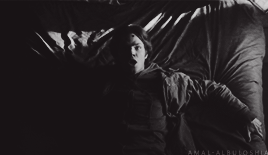
Bookend to end all bookends
“We’ve got work to do.” *double-chills*
And what’s even more significant here is Sam’s character arc for this episode bookending as he’s spent the entire narrative beating against everything his father stands for to now - without hesitation, the love of his life having just died in the exact same way the love of his father’s life died - be stepping into the very shoes he’s always rejected, ready to walk that path of vengeance for Jessica’s sake.
Dean donned John’s jacket.
Sam, starting out stating how what he wants out of life is safety with/for the woman he loves, ends up picking up a shotgun.
Their fates and their choices are linked to and mirrored in John’s fate and his choices and the basis for all that’s to come is firmly in place by the end of this pilot episode. Isn’t it just marvellous?
Other Noteworthy Things:
Dean indulges in unhealthy food twice
Sam declines unhealthy food twice
Dean says “house rules” about what goes on in the Impala and I have so many thoughts on what Baby symbolises, but “stability” and “home” are the foremost ones, so this brief line feels meaningful to me
A diner ->
A gas station ->
A motel ->
-> Settings we will become very familiar with
Cassette tapes (twelve years of cassette tapes)
Dean calls Sam out for being a control freak
Let’s bask in the gorgeous irony Kripke establishes by making it clear that being a hunter means having to break the law and Sam’s ambition in life is to be a lawyer - it underscores the internal conflict so beautifully and underlines how Sam’s vision for his future truly is the absolute Opposite to how he’s been raised
Sam needing to distance himself from his family means he’s not welcome back
This was John’s decision
Headcanon: thinking how this most probably devastated Dean, but Sam figured Dean would stick by John without hesitation so he never bothered to contact Dean, while Dean, not hearing from Sam, figured Sam wouldn’t want him to bother him *slow tear*
And that is all from me on this gorgeous episode, peeps! Hope you found this informative!!
xx
#spn meta#spn 1x01#spn pilot#spn symbolism#spn headcanon#dean winchester#sam winchester#foreshadowing#narrative strucutre#dialogue deconstruction#eric kripke is the shit
60 notes
·
View notes
Text
My thoughts aren't very collected but... It's like, why does the narrative allow Natsuo to express anger and leave, but the women of the Todoroki family have to 'wish for a normal family' and just 'move on'? It's frustrating also because Natsuo's anger should have felt more supported and heroic? I want the narrative to stop pussyfooting over how horrifically dysfunctional and abusive the family was. I want Endeavor to crumble under his son's wrath- like I want to feel those hits Natsuo brought up LANDED more? Again I think some of it is like. Public doesn't know. These kids have to advocate for themselves while the 'hero' father is praised to high heaven.
It's hard to articulate, but it feels like for all the talk of atonement, what on earth does that mean? The best thing is still for Endeavor work on being a good hero but to set his children free to exist outside of his crushing influence. It is for Endeavor to come clean to everyone what he did in the past- to stop forcing this hackneyed declarations of family to center around him. HOW ABOUT TODOMAMA GETTING TO LEAVE THE HOSPITAL HUH????
...yeah, I dunno. Frustrated.
#arget rambles#bnha spoilers#bnha is very wish fulfillment-y#but it makes me mad that the wish here is#for a nuclear family harmony#ugh#maybe this is in part because like#i don't think these children should be forced to#playact as family for some twisted ideal that family is always#most important#it reeks of post war japanese oppressive family structures...#let me make it clear i dont expect this level of nuance and critical and poignant writing about abusive households from this manga#not anymore#but i just wish it was better#we don't get hopeful and realistic abuse narratives very often#or critical engagement with the oppresive patriarchal family structures women are crushed under#todoroki shouto was hope for a lot of people#who have felt trapped in the horrible family strucutres of their owm#i wanted him to go beyond and create a life that was best for him#away from toxic influence#or at the very least because this is wish fulfillment manga#for the abuser to be punished#because listen that is even more amazing and rare than a successful underdog story#sigh
447 notes
·
View notes
Text
blossomsinthemist replied to your post “MCU Rewatch: Iron Man 2”
I will say that I think some of the "Tony is female-coded" meta is sorta . . . my fault? In that I (and some other people) wrote some meta back in the day about how comics Tony has some coding I find interesting re: gender and how it differs from a lot of other major superheroes (especially how obvious the comics make his attempts to project masculinity rather than portraying it as natural for him, and the fact that like all of Howard's disappointment in him is tied up with manhood).
I wasn't talking about MCU, though, because I feel like MCU handles it really, really differently, to say the least. But I do see echoes of the meta posts I made in posts people make now, and I think maybe some of those points are attractive to fans and people want them to apply to MCU Tony as well, you know? (For a lot of complicated reasons from projecting on the character to like, insulating themselves from purity wank criticism by associating him with traits modern fandom likes). Anyway, I feel like I know where some of that came from, anyway. The thing is, you're totally right - a lot of MCU movies are really quite sexist, but the Iron Man movies really stand out in that regard. In my personal opinion all three of them have some of the most sexist content in the entire MCU, starting with adaptational decisions and extending through, well, everything, really. And Tony's masculinity and issues with Howard are portrayed very differently.
Anyway, I definitely agree with you about this film in a lot of ways, and most especially structurally. It's a total mess with lots of pieces that don't go anywhere or seem to come to fruition and a LOT of wasted time. I read somewhere that Favreau was fighting a lot with Marvel higher ups while the film was being made and that made sense to me because it FEELS like the film was kind of stuck together without a clear idea behind it. Also I was glad to see your thoughts on the pepperony kiss there, I feel like it's very awkward and it always made me uncomfortable, like somehow kissing him made all of her very real upset feelings and frustration go away (especially how she SAYS right in that scene that she doesn't want to be CEO anymore and then in the next movie she's still CEO . . . that always bothered me a bit, especially in the context of the kissing and all that).
(I also agree that the movie's framing of Howard is extremely bizarre, both from like, a character standpoint and from a structural/narrative/writing standpoint. I understand that they clearly INTENDED to have some kind of theme about legacy and father's because the whole mirror with Vanko is set up but like . . . where did that go? What WAS the intended theme? I don't know; to this day I don't know haha.)
I don’t think you should blame yourself for this trend. Even if your meta was used as a base, MCU Tony and 616 Tony are clearly different characters, and fandom should be more aware of those differences.
But I think you hit the nail on the head with “insulating themselves from purity wank criticism by associating him with traits modern fandom likes”. I feel like since a lot of the criticism/hatred Tony gets on tumblr tends to harp on his privilleges, his standom kind of pushes back by making his character seem more progressive, as a concept, than it actually is. And I empathize with the stans’ side here, I really do, because I hate purity wank with a passion and I would pay actual money for people to stop evaluating each other’s social activism by their taste in fictional characters, but I just can’t agree with the argument. In the end, both sides end up distorting the character in different ways.
And yeah, if I were to rank, I feel like the Iron Man movies are the worst franchise when it comes to female characters, by a mile. And I get that some of it is just because they were done pretty early, before issues of representation really started getting to the mainstream, but looking back on it, a lot of elements haven’t aged well.
Wtf to the movie’s strucutre: it makes sense to think he was fighting with the executives, because the movie is just so DOWNRIGHT confusing. I can’t even say the themes didn’t work, because, like you said, I have no idea what the intended theme with the father and legacy stuff even WAS. Most of the first act that’s spend with Tony focuses a lot on how him keeping the secret of the paladium is screwing up his relationships with Rhodey and Pepper, and both of them know something is wrong, and both of them reach a point of rupture because of it, and then... it’s just magically solved? Tony apologizes to Rhodey for putting him in that position, but how is that supposed to work if Rhodey doesn’t know what was going on with him then??
And the Pepp3rony kiss is just... Like, I don’t get it, because it would have been easy to tweak the scene and have Tony give her a legitimate declaration, as he’s clearly been trying to do for the entire movie, give them some cute banter about it, and then have a kiss that would feel slightly more warranted and provide some closure to the issues they were facing. The way it happened, though, just really felt like they needed a kiss to close the movie.
20 notes
·
View notes
Note
I was wondering if you could pls describe (or show me some tags if its easier) the traits of some writers of spn..? I usually hear "X writer usually writes more sam" or "this strucutre is usual in X's episodes" but I've never been able to pick on those; the only ones I've been able to pick up are bucklmming and its beacuse they are somehow instantly bad :/ ps. u dont have to like explain EVERY single writer or anything, just general things that you know or notice in their respective episodes
Hiya :D
Yeah, it’s a thing that’s really, like, aside from Buckleming being bad and coming with a warning notice that we’re all helpless, please don’t burn the fandom down after their episodes, it’s not really more than nerdy interest that means anything about knowing who the writers are, so in that sense you have the toolkit you need to function :P
Buuut from my very very deeply nerdy and writery observations through what is now more than a decade (eep) of watching this bloody thing…
The show starts with a Generic Tone, and most of the original writers have this tone. This is in NO WAY a bad thing, but of all the writers, you have to really delve to connect common themes in their episodes, and for many of the writers who didn’t endure out of seasons 1-5, we don’t really have a clear profile on their habits, for reasons I’ll get to.
We can see Sera Gamble’s fingerprints a bit more because we get 2 seasons of her as a showrunner, but by and large as one of the original writers, she really sets the tone so her writing IS Supernatural, as much as Kripke or John Shiban or Raelle Tucker or Cathryn Humphries and whoever else wrote multiple episodes seasons 1-5. They have things they might like but dropping into a random early episode doesn’t give much away because they had a much tighter playbook.
1x13 shows this because despite serious, painful hindsight of all the things they do wrong that we recognise NOW from seasons of their nonsense, Buckleming wrote far more to the brief than they ever do these days; the difference in style has to be almost entirely attributed to being a first season and close creative control and enforced use of a playbook that disguised a ton of their worst habits which go unchecked these days, and @justanotheridijiton has dug up evidence of them cheerfully commenting on writing in such a way into deep history >.> Despite it being technically their best episode, they were fired and given a 6 year writing ban until Kripke left. So I’m guessing it was fairly obvious they had these problems regardless.
Of all these writers in the early seasons, Edlund pops up in season 2, and he is a wild card with a personality, and he does not write ~generic SPN~ and never did: it’s always Edlund SPN and it gels perfectly with the slightly less technicolour SPN, frequently breaking the format and creating the modern version of SPN… If he does comic it’s Bad Day at Black Rock and if he does deep it’s On The Head Of A Pin, and if you look at what he wrote, very very few of his episodes are duds, because he has a brain swirling deep with interesting and bizarre nonsense. He’s also the biggest Cas stan ever.
Jeremy Carver pre-Carver era helped, which I think is why he gets to be part of Carver Edlund - we have 3 and a half years of his showrunning to know what fascinated him, so I’ll just say, in his very first episode in season 3, he alludes to Cain and Abel for the first time. He’s very big on narrative structure being used in fascinating ways, and his episodes are all very technically accomplished, but the downfall was that by the end he was writing narrative symbolism as a sort of withered husk of his former self with no emotion whatsoever, just hitting storytelling marks. 11x01 is the single most depressing episode to me in terms of “this is the man who wrote Mystery Spot and Changing Channels”
Fortunately, and I’m skipping over a ton of writers to tell this story, but could go back and talk about more of the interesting ones in between, if you watch 11x01 and 11x02 back to back, they work perfectly as a single episode and it’s like after the break all the life and emotion and intrigue is breathed back into the show in a rush of colour and character. Now, Dabb is one of the OG writers in my standards, in the sense that he and Loflin showed up in season 4, and to this day Dabb’s writing to me still shows a touch of writing within the original SPN playbook as a writer who CAN write alongside Kripke, Gamble, etc, and chameleon into the background as not writing Dabbnatural, but writing Supernatural. To me this is a part of his strength when it comes to story and why he and originally Loflin shot up the ranks in Gamble era to the point where they wrote 7x23, and from there Dabb always wrote the second, middle and last episode in a second-in-command writer role, which, now we hit season 14, means that’s half the length of the show he’s been clearly estimated as one of the powerhouses.
Because he had a co-writer for 4 years, originally you might think that it’s hard to tell what he is and isn’t writing, but he and Loflin split up, I hope just to ease empty seats in the writer room, and we get 2 Loflin episodes which betray a few of his weaknesses when it comes to story/structure/pace, but reveal he was the quippier, funnier, more manic one of the two. Like, I’d say Plucky’s (my no joke favourite episode) is probably something where he would have steered it more than Dabb :P But Dabb meanwhile, writing alone, writes 8x08 which is also funny but in a very sublime way based on situation and framing etc which makes us laugh without breaking up the story for quips so much as coming from character, such as “it’s a shortened version of my name”, “stop smelling the dead guy, Cas,” and ALL the uses of cartoon effects as part of the embedded storytelling. It’s like his resume for considering what he can do as a solo writer and he blows it out of the water.
Dabb is very good at characters who might have brief one off appearances, like, even within a scene, but still have a bunch of unique personality, as well as excellent handling of the main characters, and he can write some killer speeches and emotional pleas and stuff. He’s also absolutely filled with callbacks and repeats and narrative loops, and he started this on a smaller level, either to his own episodes, or dutifully doing his job to foreshadow and build the mytharc, but in Dabb era, this has turned into absolutely exploding the show’s callbacks into a weird fractal of meanings, which I think works wonderfully for supporting a 14 year old show on its own legs, because each callback and loop goes in a different, often wild direction, but still at the same time has an emotional continuity and truth to the story based on the story predecessors. The fact he writes like this is of no surprise to meta writers who’ve been keeping tabs on him far longer than I have. In fact, a combination of all Dabb’s strengths put to work versus his One Weakness, his kryptonite, is a terrible story of Lizzy’s hubris of not paying attention to the show and a hard learned lesson :P
After 10x21 I was utterly bereft and hated the show for what it had done, but I was gonna keep watching, as sarcastically and eye-rollingly as I could, and 10x22 started to deliver in spades. Dean drove ALL THE WAY down south and back, somehow missing Cas tailing him (without a car, we later learned) and all while Sam was on an urgent timeline to get things done before Dean got back… driving an hour back and forth in the immediate vicinity of the Bunker. The last times we see Sam are Urgent Driving Montages to get there in time while he’s basically coming from up the street, and meanwhile, Dean and Cas have logged like 20 hours of driving plus farting around murdering people, and I was GLEEFULLY tearing this episode to SHREDS for its car continuity, like, HOWLING with laughter.
Anyway I took a break to get some tea and came back ready to eye-roll through the end of the episode, hit play, and walked smack into the DeanCas confrontation and dramatic speeches about everyone you love could be dead, except me, and accidentally got so tense and enraptured that I spilled an entire mug of scalding tea down my front when Dean attacked Cas and I jumped out of my skin and screamed and then yelled again because OH YEAH I WAS HOLDING TEA, and from that day on I have A: loathed Dabb for his car continuity and B: always kept my eye on that fucker and when it’s his episode and what he’s up to… Once burned etc…
Dabb’s squad are awesome though. Obviously excluding buckleming, and I think with all the bingos and complaining you know what to look for in their episodes :D
Berens has been around since season 9, which makes him a veteran in remaining writers terms, just because Carver era had an en masse leaving when contracts were up (no hard feelings, just bad timing and Berens had been newer than all of them at one point :P) Berens is another writer I think can occasionally dip into pretending to be generic SPN on some mytharc episodes but he’s just obviously not been around in ye olde days, and joined in the time when, through Gamble era and then Carver in spades, the MotW writers in particular really fell into a new style of writing the show that I absolutely adore, which is where the individual episodes rather than mytharc stuff were increasingly left to the writers to do whatever they wanted with, and become more and more writing style and structure etc as standalone canvasses for your own skills, personality, etc. Because you CAN’T keep writing the same SPN episode over and over and over, and if one of the season 1 writers came back and wrote a season of season 1 style episodes, they’d be stiflingly boring, in tone and range, compared to what we have now. To keep people interested after so long, quirkiness and the ideas that an individual writer brings to the table as THEMSELVES, becomes increasingly the only way forward to keep the show fresh. Season 4 onwards began to have more of this, and Edlund had been doing it since his first episode anyway, but to me season 6 has very specific feeling tones for the episodes, while season 7 and Robbie Thompson’s arrival in particular start to set the tone for allowing the writers to be adventurous, and to me season 7 is the shift to the style of season we had from then onwards.
I think Berens episodes feel quite muted and cleverly restrained, but really really intelligent behind that. He’s written some incredible episodes that turn the season on the head while being standalones, and his run of 14th episode being where things were knocked out of the park but on a small stage, like, conflicts in a storage unit, barn, submarine, the BMoL hq and an abandoned hotel, all have devastating and dramatic emotional consequences while still somehow seeming understated and natural, quiet, almost, in the sense of what they turn on - looks and small agreements and emotional revelations etc. He doesn’t do fun and loud and flashy very often, and he delves very serious themes of suicide and depression, so I read his episodes and quiet, powerful, and very very pointed and driven and well-constructed to get to that point. His back and forth between scenes for dramatic irony is one of the biggest features I enjoy and identify, and that was an overall theme in season 13, on a much bigger level. 13x21 and Sam’s death, and, well, the whole thing really, was a wonderful example of the tension he can hold you in this way. Also: proof he CAN have fun but only when it’s super gay :P
I think Meredith Glynn gels really well with his writing, to the point where they co-wrote an episode within her first year on the show and then she took over the 14th episode slot for the first time since Berens got to the show and wrote an excellent episode that you could have told me was one of his and I’d have believed you, since it was structurally very very similar to any of his episode 14s which I have legit started seeing as a subgenre of the show in my own weird brain sorting way :P She has a great deal more fun though. She accidentally made the Worst Timed Episode Ever In The History Of Anything with 12x05 and I think got off on the wrong foot with fandom, but since then every episode has been an improvement on the last, and she’s had some absolutely wild rides, with 13x08 being I think her masterpiece overall, though Gog and Magog are funnier as an individual set piece :P
Her writing is playful and fun and shows a deep care for the character histories and how they affect them - 12x11 is hard to believe is someone’s 2nd episode if you don’t think the new writers did their homework, because she absolutely guts Dean, and throws in a Rowena backstory freebie along with, AND handles Sam handling Dean with perfect ups and downs and brotherly affection and horror etc. I also think her Gabriel episode is the best Gabriel episode ever, for him as a character, and in terms of fun, the unholy combination of her writing and Speight directing and acting and also acting was utterly unbelievable. 10/10 would use as the episode to drag friends back to the show if they only saw seasons 1-5... It’s not even comparable with her other episodes, because she seriously levelled up as a writer while doing it. I can’t wait to see what she is up to next season :D
Davy Perez is like the dark side of the coin of Glynn, where he is fun but dark as fuck, and 13x11 has the best example of that with his cheery music-playing serial killers, but it’s an attitude he’s had all along. He does his best with Buckleming characters they do their worst with, so he singlehandedly made me think things for Crowley weren’t going to be as bad as they were in season 12 with 12x12/15 and he absolutely was the only person to give Ketch and Asmodeus anything resembling an interesting dynamic in 13x17. 12x12 was an absolute masterpiece of non-linear writing, which requires a good brain to do and then he made it funny AND all while ripping off tarantino but in SPN and not making it corny and writing Cas and Crowley’s most dramatic love confessions… 12x04 was my personal reassurance that Dabb era was going to care about Sam again after Carver neglected to deal with his shit for 4 years while dumping on him in the narrative, and Davy betrays the old Gamble sam girl traits of doing stuff like tying him up and telling us in the same breath his heart is worth 100x its weight in gold :P
His episodes are wacky and fun in a way that draws blood and makes you seriously fear for the characters, even ones you think are fine and can’t possibly die in that episode, and his darkness frequently takes what looks like it could have been a Buckleming brief and makes you care about the characters they’ve been mauling all season in their own mis-applied love of writing the villains. You NEED someone who loves writing the villains, and Davy has a real relish to it that doesn’t woobify or jerk off to their evilness, it just makes them raw and scary to the point where you might actually believe Asmodeus is threatening for half a second, or that Crowley could win season 12, or to sell us on Ketch having a glimmer of a soul.
As for Yockey… I don’t know where Dabb found him but thank GOODNESS he did because sometimes you just need to take a random gay playwright with minimal TV experience, throw them into your writers room, and say, here, go nuts. Yockey has written like half a SPN episode and multiple literal excellent stage plays that are somehow on screen with our characters, which got to the point where in 13x19 I wrote like 40k episode notes while openly weeping because my Literature degree was being yanked so hard :P His nonsense often has multiple amazing side characters, like, sometimes a LOT of amazing side characters, and he knows how to make them all work. He literally has rude mechanicals like in 13x19 and the poor drunk angel. Shakespearean tropes. If you’re ever watching a SPN episode and it’s like why is this person writing for us and not a world famous literary darling? then it’s probably a Yockey episode. I am still struggling with how to handle it, and describe what’s going on, and all I can think is of 12x10 where an article about it literally was like, here is every single episode Cas has ever been in, and how this episode pulled on it and turned it into magic gold. Like, now 4x16 and 6x20 are the straw that Yockey turns to gold. I am too emotionally compromised to write something coherent and non-fangirlish about Yockey because he’s like, #writergoals in a totally bananas set the bar as high as the moon kind of way. He’s got that rare once in a generation talent and dammit I think he counts as my generation, so there goes my chance to be that person :P
And he’s writing for fucking Supernatural.
167 notes
·
View notes
Text
my top 75 quarantine records: #65-56
check out #75-66 here!
bandcamp links under the cut as always!

youtube
#66. kendrick lamar - untitled unmastered. (2016)
this album of demos, leftovers, and outtakes from kendrick's masterpiece to pimp a butterfly is simultaneously in the shadow of that record and yet stands on its own. kendrick wasn't afraid to flirt with jazz and r&b on tpab, but this one dives hard into free jazz, off-kilter funk, and traditional, d'angelo-ish r&b, leading to some of the most colorful backings kendrick has ever rapped on. it's absolutely worth it, but you may not have the full context to really get onto its wavelength if you haven't heard tpab. so do that first!!
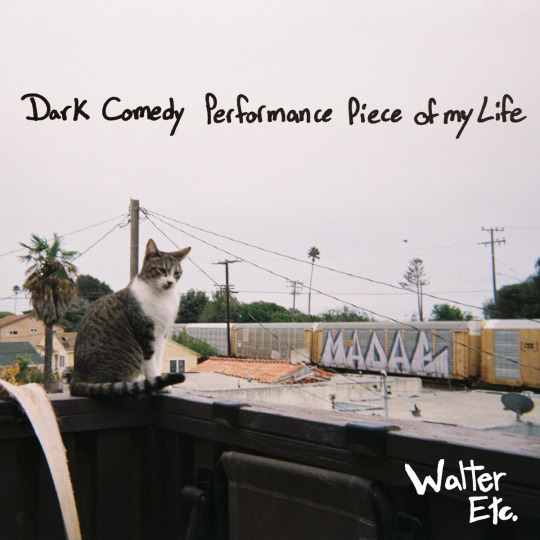
youtube
#64. walter etc - dark comedy performance piece of my life (2020)
honest to god i don't think there's a ton to say about this one, it's just a really nice scrappy post-punk songwriter record from the artist formerly known as walter mitty and his makeshift orchestra. the song topics are cute and original, his lyrical perspective is very relatable and grounded, and his instrumentals are really easy to get swept up in like little whirlwinds. it's partially a breakup album, partially an "oh god, i'm almost 30" album, partially just a jangly narrative tour of his life.
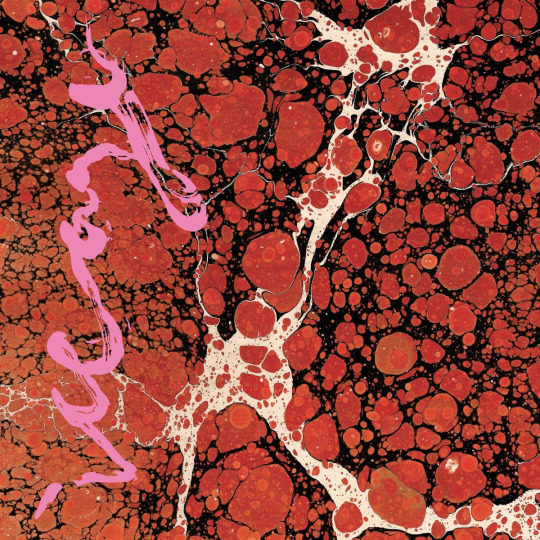
youtube
#63. iceage - beyondless (2018)
iceage often still get the "punk" or "post-punk" label slapped on them since they orbit in the circles of bands like idles and parquet courts, but there really is no other band that sounds like them. they've evolved past their early, more derivative sound, and grown to embrace slower songwriting, grinding dissonance, and the full emotional range of elias rønnenfelt's voice. the guy sounds like he's melting on most of these songs, and when his body's not liquefying he sounds somewhere between a circus ringmaster and an olt-time oil baron, the sheer sleaze of it is impressive. love this creaky thing to bits, can't wait for shelter.
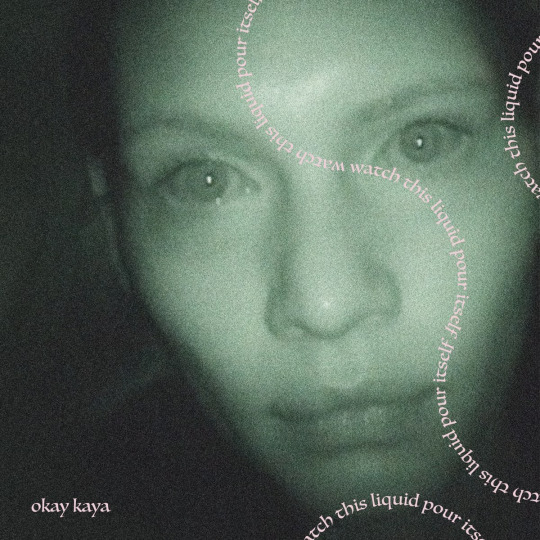
youtube
#62. okay kaya - watch this liquid pour itself (2020)
known to the world as a king krule collaborator, okay kaya's own material might actually be the equivalent of pop music on whatever bizarro planet she and archy are from. this album is like kaya peeling herself, the eerie hooks and contorted melodies somehow winding their ways into your brain. despite the creepy bent, there's influence here from jazz and r&b, and the lyrical style is personal and frank to an uncomfortable level. this is a rare album where the title and cover art convey what you're about to get perfectly.

youtube
#61. honey harper - starmaker (2020)
harper describes his queer, glam-dusted, r&b-inflected country style as "cosmic country," and while that label might be a bit pretentious, these meticulously produced and arranged songs definitely have a bit of a space vibe to them. flute passages, gentle trip-hop grooves, slide guitar, and and unexpected interpolation of the christmas song O Night Divine are all things you will find on this. it's relaxing, enjoyable, and harper's voice is like syrup.
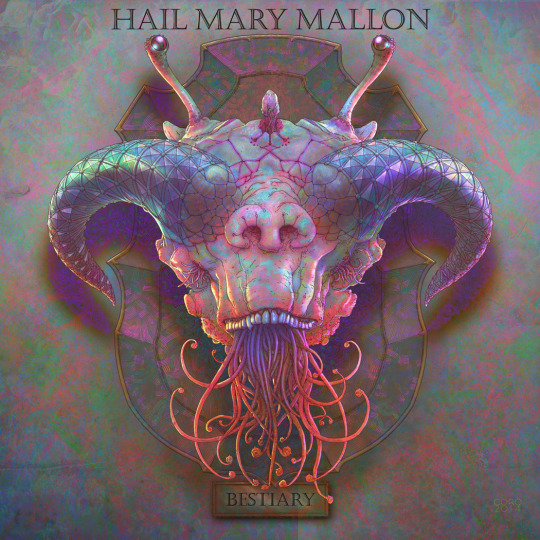
youtube
#60. hail mary mallon - bestiary (2014)
aesop rock is my favorite rapper, i have rarely heard a song of his i didn't like. this will not be his last appearance on this list either! for his hail mary mallon side project, he teamed up with fellow rhymesayers mc rob sonic, who has similarly diverse vocab, but adds an edge factor that aes doesn't usually have on his own. that's okay, since aes doesn't usually go for edge, but this is one of the only projects hes been on that i can describe as sounding a little menacing, while still employing his head-spinning, intellectual style and creative song topics. i can take or leave the fundraiser concert concept, but it does have a fun ending.

youtube
#59. car seat headrest - nervous young man (2013)
personally, i think this is csh's best pre-signing album. while it's of similar length and almost as ludicrous density as how to leave town, somehow i find this one way easier to get into and the songs just as cathartic and even stickier. the understated cover art gives way to walls of guitars, hollered choruses, and confessions of emotion wrapped up in weird metaphors and cute instrumental passages. will's kinda going through it on this one, he repeatedly tears himself and his friends and partners down, all while assuring himself that it's all fine.
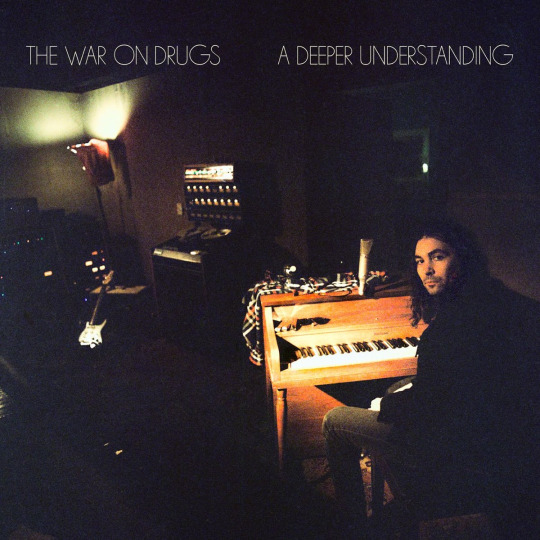
youtube
#58. the war on drugs - a deeper understanding (2017)
this was actually my first taste of the war on drugs! i got into kurt vile years ago, but somehow just missed his band entirely. i think i always thought they were too stuffy for me, but when i was younger, a lot of the time i tended to confuse "quiet" or "meditative" for "stuffy." this album is a lot of things, and while "meditative" is sometimes one of them, "quiet" is often not. right when you least expect it, these songs ignite in warm, searing guitar, bringing the sheer passion written into them into full view. the song i've linked here is really unmissable imo!!
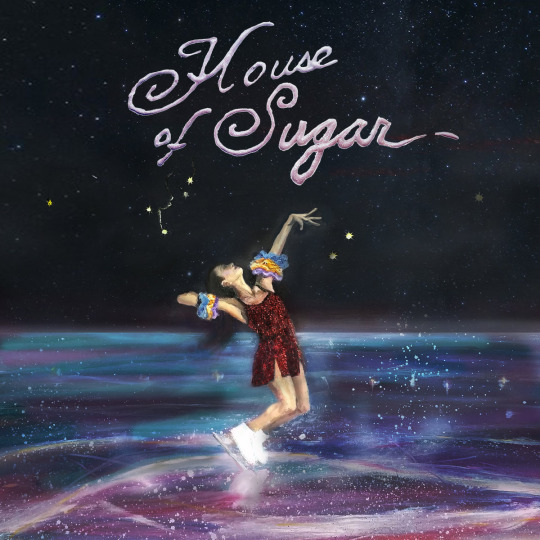
youtube
#57. alex g - house of sugar (2019)
second artist in a row that i didn't like for the longest time, but alex g is one that actually had to grow on me, rather than just never listening to him. house of sugar is one of his most immediately accessible albums imo, and while there's a lot of woozy detail to unpack in it, a lot of what's engaging and entertaining about it is right there on the surface too. captivating hooks, smoky, illusionist textures, unusual song strutures, and a dreamy, fuzzed-out aesthetic shift and osmose over each other here; when he throws in something even weirder and unexpected it sometimes barely even registers that way.
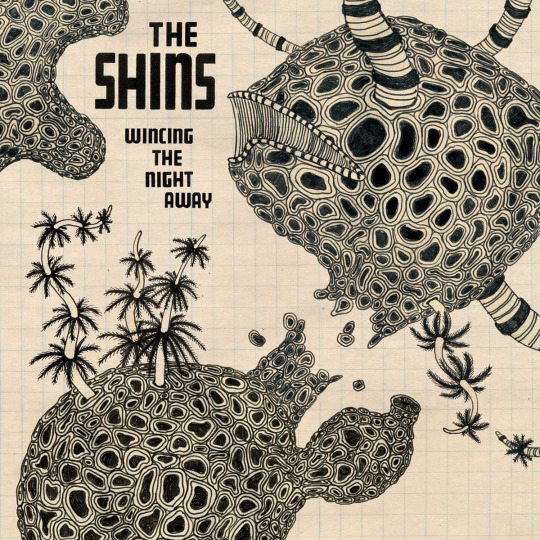
youtube
#56. the shins - wincing the night away (2007)
three in a row that i thought i didn't like for years! i think i'm the latest person in the world to the shins, but in case i'm not: this album's mix of winding song strucutres, inscrutably wordy lyrics, glossy production, and pure sugary britpop won them huge acclaim in the mid-2000s, and for good reason. james mercer is a really distinctive songwriter and voice, and this is a record that has more and more intricacies to it on repeated listens, even though it may grab you with its easygoing hooks on the first listen.
#music reviews#album reviews#the shins#alex g#sandy alex g#the war on drugs#hail mary mallon#aseop rock#car seat headrest#honey harper#okay kaya#iceage#walter etc#walter mitty#kendrick lamar#rob sonic
0 notes
Photo
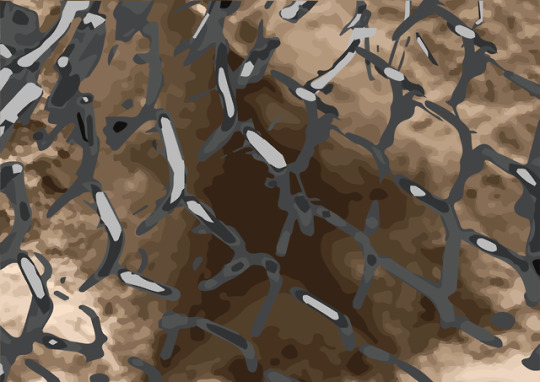
Second Composition and the third and final step to the narrative for Final submision. Within this composition I wanted to demonstrate the idea that the mesh (parasite) had taken over and precedents from the polyfill (host). In this composition it feels as if the mesh has incased the polyfill and taken it over as it covers over the top of the polyfill abstraction of form and colour-way. I made the polyfill seem as if it had been eaten strongly away at and therefore the dark hole is shown within the middle as if the soul and overall strucutral complexity and form had been strongly if not completely dismantled by the mesh and parasite.
0 notes
Text
We’re all stories in the end...
What will follow is a very long explanation of why I think BBC Sherlock has become fan fiction in every sense of the word, applying a technique called estrangement effect to achieve as well as envision this. It has been happening since S3 - but came into full force in S4 and especially TFP.
Let me state at first: Sherlock Holmes is dead. He died after jumping off Bart’s. That’s the one thing Mofftisson did that no other adaption has dared to do. Not even ACD did describe Holmes dying. But Mofftisson showed us: Sherlock jumped and hit the pavement. We saw it, and it was never explained how he survived. Because he didn’t. What we watch in TEH is altered footage, like in the beginning of TST. Alienated ficitional reality.
But still Sherlock came back. How is this possible? Because Sherlock Holmes never lived, and so could never die; because Sherlock Holmes as a fictional character has long ago crossed the line between ficiton and reality. He exists in both worlds, the ficitonal and ours. Schödinger’s Sherlock, so to speak.
Mofftiss (and Steve Thompson) have adapted Holmes for the 21st century - with all its consequences. They are the first who allow Holmes to die - as it should have been, in Watson’s arms. This is truly new - like it or not.
But why could he survive? Because of the fans. Fans brought Holmes back in 1903 - and they brought him back in S3 (or even MHR). Whereas S1 and S2 might still be somehow canon compliant if modernised, with S3/MHR the show left the realm of ACD and became something else. It became our story. We are the narrators. Therefore, we appear, for example, as Anderson or the Empty Hearse Club, before we, in TAB, leave this concrete narrator position behind to ascend onto yet another narrative level.
Many commented (and lamented) the change from S2 to S3. The show became a romcom! The cases didn’t matter anymore! All those new characters! All true - because the BBC adaption had detached itself from ACD and started to become its own work of art, it’s very own pastiche. That might be self-referential; and perhaps wasn’t even always well made (TFP!) - but I think we should stop applying real life structures and standards to this work of art - because it simply doesn’t work. (And, as every writer, Mofftiss have the right to fuck their own story up).
The audience and fandom struggle with a lot of twists after S2 because making the distinction between canon compliant fictional verisimilitude and the realm of associative fan fic is especially hard to mark with a figure like Holmes - who seems real and yet never was. On the other hand, he is the perfect character to undergo such a narrative transformation.
If this interests you, please continue under the cut.
We tend to structure random things happening within a linear narration, thereby charging these happenings with meaning, embedding them within a reasoning of cause and effect. But this is an illusion. Life doesn’t work this way. Things just happen, sometimes simultaneously, mostly randomly; they don’t have to be connected. It’s us (western) humans, with our way of thinking in past, present and future, and by drawing a straight progressing line from these points, who impose this structure on life and stories. Because we need this to function in our modern societies, that are based on reasoning and predictability. We think critical and want explanations. This is the way we are used to tell stories and be told stories. So, when we fabricate stories, we mostly apply those narrative strucutres: cause and effect, connections, one thing leading to another.
Stories who evoke the impression of telling real happenings have therefore to follow those lines and rules to be believable. As @welovethebeekeeper wrote, they have to follow a certain learned cultural verisimilitude. If these rules are broken, we start to feel uneasy. Things seem strange, fucky, we become aware that something is changing. It kind of shocks us.
Of course, there are other ways of storytelling: magical realism, for exapmple, or ghost stories, who break down the barrier between what is probable and what is not. But even most of them follow the classic form of storytelling: beginning, climax, end.
This is especially true for ACD Holmes stories, in which the deduction process always followed the laws of logic. Furthermore, within the classic Sherlock Holmes stories, the reader always knew who the narrator was: mostly Watson and, in a few instances, Holmes himself. The narrator is always identified within the first paragraph. There might, additionally, be a second narrator within a story, for example the client outlining the case or the culprit telling what happened (for example, Jonathan Small in Sign of Four). But the reader always knew who was telling the story.
Now, when Holmes was tranferred to the screen, this slightly changed. Because the things that clients or culprits might have told in the written form could now be shown, to enhance the films excitment and make good use ot the new media’s ressources. Therefore, we get kind of prologues or flashbacks; we, as viewers, see things neither Holmes nor Watson have been privy to, thereby introducing a god-like narrator perspective, watching from above. Sometimes the visual adaptations even put a piece of paper at the beginning, to visualise that we are shown one of Watson’s stories, or put a voiceover at the beginning explaining that much (like BBC Sherlock did in TAB, for example).
Thereby, the visual adaptations blurred to role of the narrator. And they changed something esle: where, when we read the ACD stories, we get the official version, filtered mostly through Watson’s storytelling, most visual adaptations create the impression that we are watching raw footage. Usually, it’s only at the end of an episode/film that Watson sits down and starts to write the case up. So, some visual adaptations step back from the published accounts and seem to show us what truly happened, thereby fabricating a feeling of reality.
BBC Sherlock does the same. Even here, John writes his blog, that is shown and features from the beginning. But we are not shown the episodes from the perspective of the blog entries (or John’s perspective), we are shown the things that happen before and lead to the blog entries. The perspective has been subtly converted to some kind of behind the scenes footage. We are following John and Sherlock on their adventures as the happen.
I’ll explain further below what it means that this blog was abandoned for S4.
Now, of course, there are also written accounts that try to evoke this kind of authenticity. Sherlock Holmes was a phenomenon in that he was one of the first fictional characters that people thought was real. Even back in ACD’s time, people wrote to the detective. His death in FINA was mourned by people in the streets. The lines between fiction and reality started to blurr.
Those written accounts operate, for example, with lost manuscripts, the true diaries of Watson, found after his death etc. They all play with the notion that those ficitonal characters were real, and that there are true stories behind the published ones that can be unearthed and told.
BBC Sherlock does this as well: At Angelo’s, one fictional character asks the other: “What do real people have then, in their real lives?” - thus evoking the impression that this show is a portrayal of real life. But it isn’t. Sherlock has no girlfriends or boyfriends in BBC Sherlock - but he has in fact archenemies. The modern setting kind of conceals this at first for contemporary audiences, because the BBC adaption isn’t removed from our time, for example to Victorian London. These two seem to be modern men in modern London - but they aren’t. The series is playing with boundaries between fiction and reality as well as with the PoV of the narrator. It gets away with it, because it - as well as the audience - is aware of Holmes’s and Watsons’s legacy.
There has been lots of discussions from which perspective S4, TAB and - to a lesser extent - S3 has been told. From that stem theories like EMP, John’s mind bungalow, alibi theory. But I think this is all just scratching on the surface while pointing out nonetheless what most of us have sensed: something is strange with the perspective since S3. Something has changed.
When you start to follow through with these theories, you come to a point where you have to acknowledge that they fall short at one point or another. For example, when did EMP start? In HLV, after the Fall, at the pool, after the pilot? You could argue and proof any of it.
Why? Because we are in a fictional story and have been from the start. How does ASiP start? With scenes neither John or Sherlock could have witnessed. They are not the narrators. It’s made plain from the start: John Watson is, unlike in canon, not the main narrator of BBC Sherlock. But still, the series follows most other adaptions in that John writes about the cases, and what happens is mostly shown from his or Sherlock’s perspective. And we, as Sherlock Holmes fans, are used to this form of storytelling and accept it. We know that we are in a story, watching an imaginated work of ficiton that is loosely based but not totally subjected to the rules of real life.
But who is telling this story?
Within the original Holmes stories, it seems to have been Watson (or Holmes). But, of course, there never was a Doctor Watson - it was all made up by Arthur Conan Doyle, who chose to tell his stories through a narrator within them, evoking the impression that said narrator witnessed the events and retold what really happened (in shaping this narrator after himself, ACD kind of started to break the fourth wall, though). And he did this so convincingly that people believed in Holmes and Watson.
Two posts I read recently gave me an idea. One is by @goodmythicalmail and explains the different PoV’s in S4 and their impossibility. The second was the already cited post by @welovethebeekeeper , explaining the trope of false documents.
Both posts refer to narrative strategies. The first one seems to call for a god-like narrator to explain all the different narrative angles we get in S4 (but which are, to a lesser extent, already present since S1). The second one describes the narrative trope of having a story told by producing an allegedly original, real manuscript within a fictional story.
This is how, for example, Nicholas Meyer tells the Holmes pastiche story The Canary Trainer. It takes the form of a lost manuscript of Dr John Watson, telling the story of Wilson, the canary trainer, mentioned in ACD’s Black Peter. The manuscript somehow finds its way to Meyer, who writes a prologue and epilogue to create the impression as if he’d edited this real story about real people.
This canary trainer is also mentioned at the beginning of TST, when Sherlock solves one case after another. Is it a clue? I think it is - a hint to the false document we’ll be watching.
Because, how does S4 end? With the hideous monologue narrated by Mary, mentioning the legend Holmes and Watson will become and the adventures they will have - as fictional characters. I ranted and hated that Mary got the last word - but it’s just a narrative technique or trope, she just tells a story, the surface narrative of classic Holmes and Watson. And so S4 is book-ended by false documents - to tell us by way of alienation that we are watching a story to which the rules of real life don’t apply.
At first, this feels totally odd and out of place, because what we’ve been watching since S3 was all about character development and the relationship of the two main protagonists: Sherlock Holmes and John Watson. Not about legends or adventures.
Now, in giving Mary the last word, throwing everything they developed over seven years prior overboard, Mofftiss either suddenly forgot how to write and tell their story... or it is on purpose.
Let’s go for the latter. I think it should show us that we are dealing with ficitonal characters, who somehow, however, have transgressed into our real world. But they are still protagonists in a story being told. Of course, we had elements of stroytelling within the story throughout the show: John’s blog, for example. All the writing on screen. The newspaper articles. But not to this extent, that makes it totally obvious that we are watching a pastiche.
There are numerous different versions of the Holmes/Watson story. ACD canon even ends with the words: ‘Someday the true story may be told’. But what is the true story of two ficitonal characters? Doesn’t every generation, every writer, interpret this truth differently? And perhaps that’s what Mofftiss wanted to do, that no one else had done before: Kill Holmes and Watson to free them. Liberty in death. To show how real Holmes and Watson can become, while still keeping them inside a story. A story that allows for different interpretations (like Johnlock, Adlock, Sherlolly, asexual genius + sidekick solving crimes) - but still, or because, speaks to many people on many levels. There is no truth. Every reading is valid.
Of course, this is on one hand frustrating in its vagueness - but it also opens up so many possibilities, especially for fans to engage with the original material and create their own. Like Mofftisson did.
Mofftiss are brilliant storytellers in this, for they show and don’t tell. Via all the things we don’t understand, that don’t make sense in a linear narrative, what we call fuckyness or emp or dream logic - they show us that we are watching a fictional story without telling us explicitly that this is fiction.
The oddity of S4 has been described in many ways: fake, fuckery, emp - you name it. All these explanations have in common that they don’t think S4 really happened. Which, of course, it didn’t - it’s a fictious story!
This is blatantly obvious since S3. Before that, Holmes and Watson inhabit the in-between realm of ficitonal characters people believe to be real. But then Sherlock Holmes dies. And it’s a legend that gets ressurrected. Because I’m sure that we are in a story within a story since TRF, a story told by fans to disguise Sherlock’s death or to deal with it an keep him alive in our stories.
I’d like to give you a few examples of why I think we are in a story within a story since the end of TRF before I explain where this all might lead. I argue that we don’t have these conglomerated callbacks to fiction in the prior episodes.
In TRF, there appear repeated hints at fairytales: the apple, the Grimm’s Brothers book, the gingerbread man.
Moriarty calls himself the villain needed for a good fairytale.
Moriarty calls himself the storyteller in the Sir Boast-A-Lot clip.
A story in a newspaper will reveal who Sherlock really is and expose him. Those articles are also called fairytales.
In MHR, Anderson tells us what Sherlock did during his time away. It is a fancy story about crimesolving around the globe. But it’s just a story, told in a pub.
Even Sherlock tells us a story - on the DVD Lestrade delivers to John. It’s simultaneously a glimpse in the past, a flashback... we’ll see more of those in the later series.
When S3 starts, we are again reminded that we must be in someone’s story, because a longhaired Sherlock is suddenly tortured in Serbia. There is no linear explanation how he got there.
There’s the added element of Mary. Some people have lamented that it became a romcom, following a different kind of storytelling than classic Holmes stories do. It shows increasing signs of being (fan)fiction.
The fourth wall is broken: Cumberbatch’s real parents play Sherlock’s parents. Martin Freeman’s partner plays his love interest. Mycroft is played by one of the writers (true, since S1).
We even get a false document in TEH: ‘How I did it by Jack the Ripper’. But it’s all fake, a story, set up again by the fan Anderson. Like the whole thing we are watching is set up by fans.
In the end, Sherlock nearly dies, another storyteller - media tycoon Magnussen - presumably dies, and a third dead storyteller - Moriarty - appears again. We’ve been moving in circles.
TAB is a Victorian fantasy. The explanation for it - Sherlock solving a crime in his MP, set in another era to explain things going on in the present - is only a thin excuse for time travelling back to the original ACD Holmes setting. And the MP in TAB is totally different from the MP we saw in S2. This is a whole new world in Sherlock’s head. Yet, due to the interwoven modern scenes, we are even repeatedly reminded that we are in a Victorian story - inhabited by Sherlock, John and all the other fictional characters.
Moriarty even tells us: It’s not real. And we can deduce that because it doesn’t make sense. Like a lot in S3 - for example the Ripper case, or the increased time jumps, or Mary shooting Sherlock, or the whole leverage chain Magnussen spins and so forth.
Yet TAB has to be set in 1895 - because of the poem that circles around the everlasting presence of Sherlock Holmes - a man out of his time, for any time. Not real, yet not wholy fictional either. Poetry and truth.
At the end of TAB, John even calls himself a storyteller and declares that he knows when he’s in one. This is a fictional character stepping out of his role, acknowldeging that he plays one - a core feature of epic theatre and its alienating effect. This again changes the narrative perspective, in becoming truly meta, lifted onto an outer- or uber-textual level. It’s not John’s story. He doesn’t tell it - he’s just in it.
We get the impossible transition from Victorian Baker Street to modern Baker Street - like the transition of the Victorian fictional character Sherlock Holmes into a public figure that has left the realm of fiction and entered our reality.
Then again, with the beginning of S4, everything we thought we knew is altered. Apparently, Sherlock didn’t shoot Magnussen. There’s a new story told via a video.
Then we get the above mentioned canary trainer - from a false document story, telling us this might seem real but isn’t.
As if to point in that direction, documents feature in TAB/S4, but we never see what they contain... false documents: The list with drugs in TAB. John’s letter to Sherlock. Mary’s drugged piece of paper. Mary’s letter to John. The AGRA stick. this evokes a false sense of reality while simultaneously, in applying this trope, revelas what is happening.
Sherlock even starts to openly recite Shakespeare monologues: he’s not only talking about scenes from plays, he’s enacting them. A play within a play - a metaphore for what is going on.
Everything gets stranger and stranger during S4. Characters are there and not (Faith/Eurus). Characters act totally OOC (John beating Sherlock up). We even see a cameraman. Who is who? What is going on? People die - but it looks more and more like a farce. Because it is. It is not real - a play within a play. We see the characters act like actors (Mary dying, for example, and John’s reaction - badly acted to emphasise that it is acted).
And as every proper pastiche has the right to introduce one new character - we get Eurus. Who lives at Sherrinford - in a pastiche character! Omnipotent, allmighty Eurus. Like our storyteller. Only - of course - no one in the story can tell it like it is told. She is again a metaphore - for someone telling a story, creating a maze, making characters react to her whims. Like a puppet master. An allmighty storyteller.
As the story becomes less and less probable and and more and more illogical, we, as viewers, get hints as to question what we see: We see Saw, Shining, Shutter Island, Spectre and loads of other movies. TFP even starts with Mycroft watching a film like a fan. It becomes absurd.
We end with Mary’s voiceover. It’s all about the legend, the stories, the adventures. It’s always 1895. Mofftiss put the storyteller’s words into Mary’s mouth - to show that this can’t be real, that it is someone else’s narrative, who tells us this version of Holmes and Watson. It’s not real, and it’s not their true story, it’s an interpretation.
It’s a story within a story, pure fiction detaching itself from fictional reality. Not like the comic books in the Geek Interpreter, where the comics started to become real. It’s the other way around now: The story becomes more and more artificial.
In that, the whole of S4, but especially TFP, reminds me of Brecht’s epic thearter that is based on the estrangement or alienation effect: “The purpose of this technique was to make the audience feel detached from the action of the play, so they do not become immersed in the fictional reality of the stage or become overly empathetic of the characters. Having actors play multiple characters, rearrange the set in full view of the audience, and "break the fourth wall" by speaking to the audience are all ways he used to achieve the alienation effect. Lighting can also be used to emulate the effect. For example, flooding the theatre with bright lights (not just the stage) and placing lighting equipment on stage can encourage the audience to understand that the production is merely a production instead of reality.” The aim of this form of theater was to “encourage playwrights to address issues related to "contemporary existence." This new subject matter would then be staged by means of documentary effects, audience interaction, and strategies to cultivate an objective response.”
In short, the audience should be aware of watching art, and shouldn’t be carried away by their emotions; instead, they should think, question not only the issues the play - or tv series - deals with, but their own circumsatnces in relation to its meaning as well. Rings a bell with lgbtq representation, for example?
In a 21st century tv show this is, however, not achievable by theatrical techniques applied in 20th century political theatre. BBC Sherlock used some of those techniques - breaking the fourth wall, characters mirroring other characters extensively and therefore actors kind of playing multiple characters - but the alienation effect was mostly achieved by continuously removing the story from the reign of verisimilitude.
It started with the end of S2, where something fundamentally changed at the end of TRF. There something happens that is totally different to ACD canon, and the first thing in the whole series that simply can’t be real, can’t be explained (and never is): Sherlock jumps of that roof - and survives. The trick in ACD’s FINA was that Holmes never went down the Reichenbach Fall. And, honestly, you can’t survive jumping off that roof. It’s impossible.
But we see Sherlock jump - therefore that’s what happened. And it’s never revealed how he survived. Sherlock Holmes is dead since TRF and what we’ve seen since then is a story told to us as a means to conceal this. It is kind of an alibi story - but not for John, for Sherlock.
Because you can’t kill an idea.
And therefore Sherlock Holmes isn’t dead. But he is. And becomes Schrödinger’s Holmes.
So, who is this narrator, who tells us this cover-up story? Mofftiss, who feature heavily in fan discourse and even got their own aconym? Or Arthur Conan Doyle, who invented Holmes and Watson?
There have been adaptions of Holmes in which ACD turns up and breaks the fourth wall (having the creator of the play step on stage is also a popular feature in epic theatre). The play ‘The Penultimate Problem of Sherlock Holmes’, for example. Remember all those penultimate tweets during setlock? ACD also figures in the German film ‘Der Mann, der Sherlock Holmes war’ - a film in which two frauds pretend to be Sherlock Holmes and John Watson, but solve a crime nonetheless and get ACD’s blessing in the end.
I am aware that after TAB, there were some metas arguing for John as the storyteller. But since S4 this can’t hold, because, as @goodmythicalmail has explained, we see stuff from a persepctive that can’t be John’s. For example, we see the flashback of John leaving Lauriston Gardens in ASiP - but not from John’s perspective, and neither from Sherlock’s. It is as if a superimposed god-like narrator looks down on the story and tells/shows it to us.
I doubt that Mofftiss would exhume ACD. And as much as they are prone to hubris - to write themselves into their own series - as writers/creators - sounds over the top even for their liking.
So, who continues to tell Sherlock’s and John’s story. The fans! Only, the more time elapses, the more our stories tend to depart from the characters we met in S1 and S2. The stories start to get increasingly fantastic. But it’s us fans who keep Sherlock and John alive. And even Mofftiss are ‘just’ fans.
I think we are watching a story, being told by fans, because the protagonist stepped off a roof and is dead, but his legend - the idea - lives on in numerous adaptations. This theory explains most things other theories struggle with: the changing PoV’s; the ever prolongued alleged coma/dream, that isn’t made explicit and therefore kind of fizzles out; the alibi theories; the fuckyness. It even incorporates things like an ARG - be it by the BBC or fanrun or imagined. Because it is created around the character of Sherlock Holmes and wouldn’t exist without the fans. We create our own ficitonal reality, our own canon.
I think everything we’ve been criticising since S4 aired was intentional. It’s a clue. For those who look deeper - us. We already ascended to meta level: we not only ask ‘Does this make sense for Sherlock as a character’ - but we start to question the storytelling itself, the writing, analyse the tropes. We are aware that we are watching a manufactured piece of art - we have stepped back in the true sense of the estrangement effect. We should now fully embrace this idea. Because imo, the increasing fuckyness, the dreamlike feeling, the plot holes, the bad writing, the adaption of other films - are all signs that this story moved from the realm of narrative verisimilitude, set in some form of fictional reality, towards a pure fairytale, a legend. Sherlock Holmes belongs to all of us. He is public domain.
And this is exactly adapting the Sherlock Holmes experience. He never lived and never died. He’s not real, we know that, yet we play the game as if he is. We believe in him. Sherlock Holmes has transcendet the border between fiction and reality - and so did the series.
Comparing the series to fan fiction is not saying btw that fan ficiton has to be badly written. On the contrary. I only think Mofftiss overplayed so heavily in S4, wrote in plot holes etc, for the inclined viewers to start to question what the hell they were watching?! In that, S4 took the concept even a step further than TAB - and that is brave storytelling. It needs courage to serve this ‘crap’ - to literally risk the alienation of the fan base by showing them that they now own the stories.
And Johnlock? Well, epic theatre is not a means in itself, not self-indulgent. It has a message. The audience shall look at what is happening, become aware of social injustice. Sherlock can be read as being about representation - not in giving answers but by asking questions in this regard and get people to think. It can be read as being about the influence of the media (fake news!). It can be read as being about the surveilance state. It can be read as fan empowerment. And, as @darlingtonsubstitution argued, John and Sherlock might very well become the narrators of their own story. I’d love to explore this angle, but at the moment I am sticking with us fans as storytellers.
And if we only take S1 and S2 as being ficitonally real, I’m sure you can very well show how Johnlock is embedded in the story. It’s set up in S1, while in S2 John stops denying, and they seem almost ‘married’. And to whom does Sherlock - like ACD Holmes - address his final note? To John. Not to Molly, or Irene, or even Mycroft. To me, this confirms Johnlock, but it ends tragic and still not explicit. Do I like that? Well, if it’s the greatest lovestory never told, I can see its appeal. It’s incredibly sad, a tragic love story - but it’s the writers decision. If Sherlock had ended after S2, I’d never accused them of queerbaiting. Because, in the end, it was made quite plain where Sherlock’s heart belonged. But by implying it heavily without making it canon, Mofftisson keep the door open for other ships to sail when we enter the realm of fan fiction in S3.
And I think if you want to, you could still read Johnlock into S4. I’ve seen it done. As you might see Sherlolly or Adlock or Warstan if you want to. This vagueness can be seen as a weakness - if you still want the series to resemble some form of reality. If not, it opens Sherlock’s story up for many fan readings. As ACD said: You can marry him or murder him. It was all fine with him. Therefore, every reading should be fine with us, the fans. We should argue, discuss, and write our own versions. Because this keeps Sherlock Holmes and John Watson alive - even if they never lived.
#sherlock#alienation effect#we are all stories in the end#the fans are the narrators#ficitonal reality#narrative strategy#meta
243 notes
·
View notes